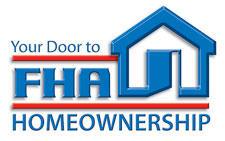 New Legislation*
New Legislation*
Civil Code Section 5300 requires a HOA to prepare and distribute to its members an annual budget report. The annual budget report serves as a consolidated disclosure statement which must include numerous items of information, such as information pertaining to the HOA’s reserve funds, operating budget, and insurance policies.
In June of this year, we blogged about AB 596 (Daly), a bill proposed by the California Legislature that would require additional statements of information to be distributed with the annual budget report for condominium HOAs. Those statements would disclose the status of the condominium development as being a Federal Housing Administration (FHA) approved condominium project or a Department of Veterans Affairs (VA) approved condominium project.
AB 596 was signed by Governor Brown on August 12, 2015. As a result, beginning July 1, 2016, Civil Code Section 5300 will additionally require condominium HOAs to provide the following statements in at least 10-point font on separate pieces of paper that accompany the annual budget report:
“Certification by the Federal Housing Administration may provide benefits to members of an association, including an improvement in an owner’s ability to refinance a mortgage or obtain secondary financing and an increase in the pool of potential buyers of the separate interest. This common interest development [is/is not (circle one)] a condominium project. The association of this common interest development [is/is not (circle one)] certified by the Federal Housing Administration.”
“Certification by the federal Department of Veterans Affairs may provide benefits to members of an association, including an improvement in an owner’s ability to refinance a mortgage or obtain secondary financing and an increase in the pool of potential buyers of the separate interest. This common interest development [is/is not (circle one)] a condominium project. The association of this common interest development [is/is not (circle one)] certified by the federal Department of Veterans Affairs.”
The intent behind AB 596 is to ensure that condominium owners and prospective condominium owners understand the benefits of a condominium development being FHA or VA approved and how the availability of FHA or VA financing benefits the marketability of the condominium units within the development.
Industry experts have expressed concern that a HOA which was certified at the time of the disclosure may not retain that certification throughout the course of the fiscal year. However, AB 596 does not add a requirement for the disclosure statements to be revised mid-year should the HOA’s FHA or VA certification status change. FHA approval expires every two years and requires a recertification process. If a community no longer meets the FHA approval guidelines, recertification may be rejected. If approval is granted, but the FHA learns of additional factors, approval may be withdrawn. HUD does not currently have a notification system in place to inform the association that FHA approval has expired or been withdrawn.
| Condominium HOA boards and managers are encouraged to regularly check for FHA Approval at the Official HUD Directory and VA Approval at the Official VA Directory to verify the current status of their communities. |
 HOA Lawyer Blog
HOA Lawyer Blog



 *New Library Article
*New Library Article Our
Our  The
The  *New Resource
*New Resource